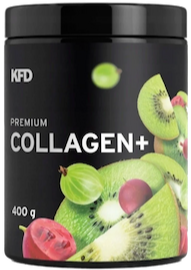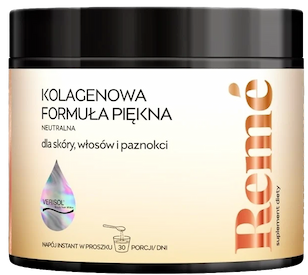What destroys collagen in the body and skin [tips & remedies]
Discover what damages collagen in the body, how to protect your skin and joints and improve their firmness.


Learn more about our editorial process
.

Learn more about our editorial process
.

Learn more about our editorial process
.

Learn more about our editorial process
.![What destroys collagen in the body and skin [tips & remedies]](https://cdn-resources.natu.care/uploads/1/piekna_kobieta_z_rozwianymi_wlosami_stojaca_w_pelnym_sloncu_blisko_natury_b3ce2157ed.jpg)
Why you can trust us
Articles on Natu.Care are written based on scientific research, data from government websites and other reliable sources. The texts are written in cooperation with doctors, nutritionists and other health and beauty experts. Articles are reviewed before publication and during significant updates.
.Learn more about our editorial process
.Information about advertisements
Content on Natu.Care may contain links to products from the sale of which we may receive a commission. When creating content, we adhere to high editorial standards and take care to be objective about the products discussed. The presence of affiliate links is not dictated by our partners, and we select the products we review ourselves completely independently.
.Learn more about our terms and Conditions
.Just as a building is exposed to rain, wind and sun, your collagen faces constant adversity. And there are more of them than you may think.
With clinical nutritionist Julia Skrajda, we've taken them under the microscope. Below you'll find tips to keep your foundations strong and your façade beautiful.
The following is a guide to maintaining a strong foundation and a beautiful façade.
From this article you will learn:
- What degrades collagen in the body.
- How to reduce collagen degradation.
- What should be included in a collagen diet.
- Whether collagen supplements are effective. .

Zobacz, co może zrobić dla Twojego zdrowia i urody Natu.Care Kolagen Premium 5000 mg -15% z kodem BLOG15
Natu.Care Kolagen Premium 5000 mg, kakao
Natu.Care Kolagen Premium dla zdrowia stawów, skóry, paznokci i włosów. Najlepsza przyswajalność. Optymalna dawka 5 000 lub 10 000 mg. Przebadany przez niezależne laboratorium.
Zobacz więcej
Efekty zaczęłam dostrzegać po około 5 tygodniach. Włosy są nawilżone, przestały też wypadać. Moja wrażliwa cera przestała się przesuszać. Plus za pyszny smak!@Milena Dlugosz
See also:
.
- The best collagen
- Facial collagen
- Collagen for skin
- Collagen for joints
- Collagen for tendons
- Collagen for bones
- Hair collagen
- Collagen for cellulite
- Collagen for acne
- Collagen for stretch marks
- Collagen for scars
- Drinking collagen andDrinking collagen (effects)
What destroys collagen in the body?
.
Collagen in the body is mainly destroyed by age. In addition to it, factors that flush out this protein include: excess free radicals, UV radiation, vitamin and mineral deficiencies (e.g. vitamins A, C, E and copper), smoking, alcohol abuse, lack of exercise, consumption of large amounts of sugar, excessive stress.
Oxidative stress
.
In addition to age and hormonal behaviour, oxidative stress is the main factor that damages collagen in your body. Free radicals lead to a deterioration in the synthesis of this protein and accelerate its degradation.
This can lead to damage to proteins, lipids and DNA. Collagen, as a key structural protein of the body, can be particularly affected by this damage. Some of the causes of oxidative stress are:
- exposure to heavy metals,
- inappropriate diet,
- smoking,
- chronic stress,
- UV radiation,
Oxidative stress can also affect the structural integrity of the skin, creating an abnormal tissue microenvironment. This, in turn, promotes the development of age-related skin disorders, such as impaired wound healing.
Heavy metals, e.g. nickel, can lead to increased expression of collagenases - enzymes responsible for the breakdown of collagen. These enzymes cause the skin's extracellular matrix to weaken, resulting in deterioration of the and.
UV radiation
.
Long-term exposure to ultraviolet (UV) radiation can damage collagen and its fibres. As a result, visual signs of ageing such as wrinkles and other skin-related problems (e.g. sagging or dryness) will appear, as UV radiation causes photodegradation of collagen and.
Be sure to protect your skin from UV radiation - use screen creams. You will prevent collagen damage and skin ageing. In short, you will prolong your youth (after all, age is just a number, right?).
Eating lots of sugar
.
Sugar and refined carbohydrates (found in processed foods) can damage collagen in the body through a process called glycation and.
Glycation is a non-enzymatic reaction between sugars and the amino groups of proteins (e.g. collagen). It leads to a disruption in the structure of collagen. The result can be a reduction in its strength and elasticity in your body and.
You don't have to go through life in an anti-sugar celibacy, but definitely leave sweets and snacksfor special occasions.
Cigarette smoking
.
Cigarette smoke contains toxic chemicals and free radicals that disrupt the chemical structure of collagen. The tangible effects can be joint pain or worse skin condition.
In turn, the nicotine in cigarette smoke suppresses the immune system, leading to poor wound healing and an increased risk of infection. Cigarette smoke also affects fibroblasts (connective tissue cells) and decreases the body's production of collagen and.
Don't smoke, simply put. Not just to protect collagen, but simply to live longer and healthier.
.
Vitamin and mineral deficiency
.
A lack of vitamins and minerals prevents your body from synthesising collagen and accelerates its degradation and. Be sure to eat foods rich in:
- vitamin C,
- zinc,
- copper,
- vitamin A,
- MSM (organic sulfur),
- vitamin E,
For example
Citrus fruits, leafy vegetables, kiwi, oranges, peppers, red meats, almonds, liver or nuts.
Strongly stick to a healthy diet that contains a variety of vitamins and minerals. A balanced menu rich in fruits, vegetables and lean protein sources provides the necessary nutrients for collagen synthesis.
See also:
- What collagen to choose
- Best absorbable collagen
- Drinkable collagen
- Liquid collagen
- Collagen in sachets
- Collagen in tablets
- Collagen powder
- Collagen shot
- Liophilised collagen
- Collagen hydrolysate
- Fish collagen for drinking
Environmental pollutants
Environmental pollutants increase oxidative stress and inflammation which is not conducive to collagen and.
Inflammation is your body's response to pollutants that contribute to collagen degradation. The immune system then releases so-called pro-inflammatory cytokines, which can interfere with collagen production and overall skin integrity .
You won't change your environment overnight. However, you can put an air purifier in your home. Plan outdoor activities according to the pollution levels in - oh, ironically! - outdoors.
Lack of exercise
Daily physical activity supports the maintenance of adequate collagen levels and also prevents arterial stiffness. This positively affects blood flow and prevents heart disease.
Lack of exercise leads to reduced collagen synthesis and accelerates collagen breakdown and.
Consume exercise - from walking, running and cycling to crossfit WODs. Aerobics do not exempt you from strength training and vice versa.
Excessive alcohol consumption
Excessive alcohol consumption negatively affects everything, including collagen production and. Alcohol causes:
- Inflammation - excessive alcohol consumption can cause inflammation, which breaks down collagen and weakens the structure of the skin.
- Oxidative stress - the metabolic process of alcohol leads to oxidative stress, which can damage collagen fibres and negatively affect their formation.
You don't have to quit alcohol once and for all. Research consistently suggests that the occasional glass of wine or pint of beer not only does no harm, but can actually extend the life of and.

Zobacz, co może zrobić dla Twojego zdrowia i urody Natu.Care Kolagen Premium 5000 mg -15% z kodem BLOG15
Natu.Care Kolagen Premium 5000 mg, kakao
Natu.Care Kolagen Premium dla zdrowia stawów, skóry, paznokci i włosów. Najlepsza przyswajalność. Optymalna dawka 5 000 lub 10 000 mg. Przebadany przez niezależne laboratorium.
Zobacz więcej
Efekty zaczęłam dostrzegać po około 5 tygodniach. Włosy są nawilżone, przestały też wypadać. Moja wrażliwa cera przestała się przesuszać. Plus za pyszny smak!@Milena Dlugosz
What about my collagen if I am a woman?
Research suggests that collagen levels in women decline significantly during menopause. This period is associated with a decrease in estrogen, which plays an important role in collagen production.
Collagen deficiency occurs faster in women than in men - this is related to estrogen disruption. Hormonal problems have a negative impact on your body's collagen synthesis. For this reason, it is recommended that women take care of correct hormone levels, regularity of ovulation and menstruation, regular examinations (TSH, oestradiol, progesterone, LH and FSH) and frequent visits to the gynaecologist.

Julia SkrajdaDietitian
How to reduce collagen depletion by the body?
You will replenish collagen levels with simple but important changes in your life and diet:
- Care for calmness in your life and try to reduce stress, e.g. at work or in your daily life.
- Care for calmness in your life and try to reduce stress.
- Avoid prolonged exposure to the sun and use screen sunscreen.
- Avoid prolonged exposure to the sun and use sunscreen.
- Stop or limit smoking and alcohol consumption.
- Limit processed foods and sweets.
- Exercise regularly to maintain tissue elasticity and promote collagen production.
- Eat more fruits and vegetables that provide vitamins and minerals (e.g. vitamin A, C or zinc), which are essential for collagen synthesis. You can also support yourself with sensible supplementation. .
How to combat the causes of deficiency yourself, i.e. the collagen diet?
On a collagen diet, eat products rich in collagen itself as well as proteins, amino acids and vitamins that support collagen production. Consume:
- Bone broths - Broths based on beef, poultry or pork bones are a very good source of collagen.
- Meat, fish and seafood - the protein in these products is rich in amino acids such as lysine and proline - essential ingredients for collagen production.
- Citrus fruits - vitamin C found in fruits such as oranges, grapefruits and strawberries, is crucial for collagen synthesis.
- Aggs - the protein in eggs (similar to meat) provides the amino acids needed to build collagen. In addition, the yolk is a source of vitamin A, which aids collagen production.
- Nuts and seeds - nuts, chia seeds, flaxseeds are a source of vitamin E which supports collagen production.
- Cabbage, spinach and other leafy vegetables - rich in vitamin C and A, these vegetables enhance collagen production.
- Green tea - it contains antioxidants that protect collagen and promote its production.
Incorporate these foods into your menu to support the health of your skin, joints and connective tissue.
Is it worth taking collagen supplements?
.
Yes. Take collagen supplements as they can reduce the body's depletion of collagen. Choose formulations containing hydrolysed collagen, which is distinguished by its good bioavailability. The optimal source? Opt for fish collagen (sea collagen). Research suggests that it is absorbed up to 1.5 times faster than, say, beef and.
Also pay attention to the composition of collagen supplements. The best ones contain 5-10 grams of hydrolysate and additional active ingredients (especially vitamin C or hyaluronic acid). If you are looking for the strongest collagen, then check out these supplements: Natu.Care premium collagen, Colladrop Flex, Sundose collagen, or Colladrop Forte.
Collagen administered orally (for example, in tablet, liquid or dissolved powder form) can be used by the body to synthesise it..
 .
.
Witold Tomaszewskidoctor of medical sciences
.Natu.Care Collagen Premium 5000 mg, mango-maracuja

- Collagen content: 5000 mg marine collagen hydrolysate
- .
- Additional active ingredients: vitamin C, low molecular weight hyaluronic acid (and L-theanine and coenzyme Q10 in cocoa flavoured collagen or vitamin A and vitamin E in mango–passion fruit flavoured collagen)
- .
- Form: powder sachets
- .
- Dose: 1 sachet per day
- .
- Sufficient for: 30 days
- .
Product description
Fish collagen from the Natu.Care brand in a dose of 5000 mg. The formula contains a sufficient portion of the active substance to positively affect your joints, musculoskeletal system and immunity.
Take care of your tendons, joint cartilage, ligaments, muscles and even bones by supplying them with the building blocks to function properly. Move without bólu and provide the necessary support for any physical activity.
And as a „gratis” to regular supplementation, you will also receive firm skinóhand, healthy and shiny hair and strong nails.
Natu.Care Premium Collagen is available in two flavours – Cacao Bloom and Rise&Shine. Both formulas are based on the following active ingredients: marine collagen hydrolysate, wild roseóbud extract and hyaluronic acid.
Additionally, Cacao Bloom contains natural L-theanine, coenzyme Q10 and defatted Dutch cacao. Rise&Shine instead contains vitamin E and vitamin A.
These are the best collagens in the world.
These best fish collagens on the market also rós taste – Cacao Bloom is a treat for chocolate lovers. Rise&Shine will appeal to those whoóenjoy the refreshing taste of mangoófruit and passion fruit.
Pros and cons
Fish collagen from the Natu.Care brand in a dose of 5000 mg. The formula contains a sufficient portion of the active substance to positively affect your joints, musculoskeletal system and immunity.
Take care of your tendons, joint cartilage, ligaments, muscles and even bones by supplying them with the building blocks to function properly. Move without bólu and provide the necessary support for any physical activity.
And as a „gratis” to regular supplementation, you will also receive firm skinóhand, healthy and shiny hair and strong nails.
Natu.Care Premium Collagen is available in two flavours – Cacao Bloom and Rise&Shine. Both formulas are based on the following active ingredients: marine collagen hydrolysate, wild roseóbud extract and hyaluronic acid.
Additionally, Cacao Bloom contains natural L-theanine, coenzyme Q10 and defatted Dutch cacao. Rise&Shine instead contains vitamin E and vitamin A.
These are the best collagens in the world.
These best fish collagens on the market also rós taste – Cacao Bloom is a treat for chocolate lovers. Rise&Shine will appeal to those whoóenjoy the refreshing taste of mangoófruit and passion fruit.
Additional information
Fish collagen from the Natu.Care brand in a dose of 5000 mg. The formula contains a sufficient portion of the active substance to positively affect your joints, musculoskeletal system and immunity.
Take care of your tendons, joint cartilage, ligaments, muscles and even bones by supplying them with the building blocks to function properly. Move without bólu and provide the necessary support for any physical activity.
And as a „gratis” to regular supplementation, you will also receive firm skinóhand, healthy and shiny hair and strong nails.
Natu.Care Premium Collagen is available in two flavours – Cacao Bloom and Rise&Shine. Both formulas are based on the following active ingredients: marine collagen hydrolysate, wild roseóbud extract and hyaluronic acid.
Additionally, Cacao Bloom contains natural L-theanine, coenzyme Q10 and defatted Dutch cacao. Rise&Shine instead contains vitamin E and vitamin A.
These are the best collagens in the world.
These best fish collagens on the market also rós taste – Cacao Bloom is a treat for chocolate lovers. Rise&Shine will appeal to those whoóenjoy the refreshing taste of mangoófruit and passion fruit.
User review
Fish collagen from the Natu.Care brand in a dose of 5000 mg. The formula contains a sufficient portion of the active substance to positively affect your joints, musculoskeletal system and immunity.
Take care of your tendons, joint cartilage, ligaments, muscles and even bones by supplying them with the building blocks to function properly. Move without bólu and provide the necessary support for any physical activity.
And as a „gratis” to regular supplementation, you will also receive firm skinóhand, healthy and shiny hair and strong nails.
Natu.Care Premium Collagen is available in two flavours – Cacao Bloom and Rise&Shine. Both formulas are based on the following active ingredients: marine collagen hydrolysate, wild roseóbud extract and hyaluronic acid.
Additionally, Cacao Bloom contains natural L-theanine, coenzyme Q10 and defatted Dutch cacao. Rise&Shine instead contains vitamin E and vitamin A.
These are the best collagens in the world.
These best fish collagens on the market also rós taste – Cacao Bloom is a treat for chocolate lovers. Rise&Shine will appeal to those whoóenjoy the refreshing taste of mangoófruit and passion fruit.
Natu.Care Collagen Premium 10000 mg, cherry

- Collagen content: 10,000 mg of hydrolyzed bovine collagen
- Additional active ingredients: vitamin C, low molecular weight hyaluronic acid, glucosamine, chondroitin, extract of Indian frankincense resin (boswellia serrata)
- Form: powder sachets for drinking
- Serving: 1 sachet per day
- Lasts for: 30 days
Product description
One of the strongest collagens on the market, providing as much as 10,000 mg per daily serving. This product can effectively support the condition of joints, skin, hair, and nails.
With this supplement, you will support your skeletal and joint system as well as your beauty, helping you visually halt the aging process and feel rejuvenated!
Pros and cons
Pros:
- The daily portion of collagen is very large – as much as 10,000 mg.
- Proven collagen formula – COLLinstant, whose effectiveness has been confirmed in clinical studies.
- Effective dose of hyaluronic acid, which additionally moisturizes the skin and positively affects joint health.
- Vitamin C supports the body's natural collagen production.
- Glucosamine is a fundamental building block of compounds found in joint cartilage and a component of collagen that gives elasticity to connective tissue in tendons.
- Chondroitin is a natural component found in the human body, mainly in cartilage. This large molecule (mucopolysaccharide) has the ability to absorb water, which helps maintain the elasticity and resilience of cartilage.
- Frankincense resin extract supports blood circulation and joint mobility and reduces their stiffness. It may help alleviate inflammatory conditions.
- The composition has been tested by the independent and accredited J.S. Hamilton laboratory.
Cons:
- None.
Additional information
Users praise Natu.Care Collagen Premium for the easy dissolving of the powder.
ALLDEYNN Collarose Fish
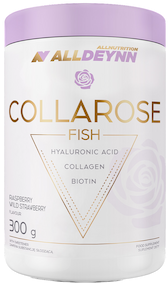
- Collagen content: 5000 mg hydrolysate fish collagen VERISOL F® .
- Additional active ingredients: vitamin C, hyaluronic acid, biotin
- Form: powder to dissolve in water .
- Dose: one scoop (6 g) of powder daily .
- Sufficient for: 50 days .
Product description
Atlantic cod collagen VERISOL F® contained in the formula are easily absorbed collagen peptides of fish origin. Regular supplementation can firm your skinóhand and slow down the ageing process. Your nails will become stronger and stop breaking. The addition of biotin will improve the condition of your hairów. The collagen portion is high enough to also have a good effect on your joints, muscles and bones.
Pros and cons
Atlantic cod collagen VERISOL F® contained in the formula are easily absorbed collagen peptides of fish origin. Regular supplementation can firm your skinóhand and slow down the ageing process. Your nails will become stronger and stop breaking. The addition of biotin will improve the condition of your hairów. The collagen portion is high enough to also have a good effect on your joints, muscles and bones.
Additional information
Atlantic cod collagen VERISOL F® contained in the formula are easily absorbed collagen peptides of fish origin. Regular supplementation can firm your skinóhand and slow down the ageing process. Your nails will become stronger and stop breaking. The addition of biotin will improve the condition of your hairów. The collagen portion is high enough to also have a good effect on your joints, muscles and bones.
Expert and user opinion
Atlantic cod collagen VERISOL F® contained in the formula are easily absorbed collagen peptides of fish origin. Regular supplementation can firm your skinóhand and slow down the ageing process. Your nails will become stronger and stop breaking. The addition of biotin will improve the condition of your hairów. The collagen portion is high enough to also have a good effect on your joints, muscles and bones.
DuoLife Collagen fish collagen 2500 mg
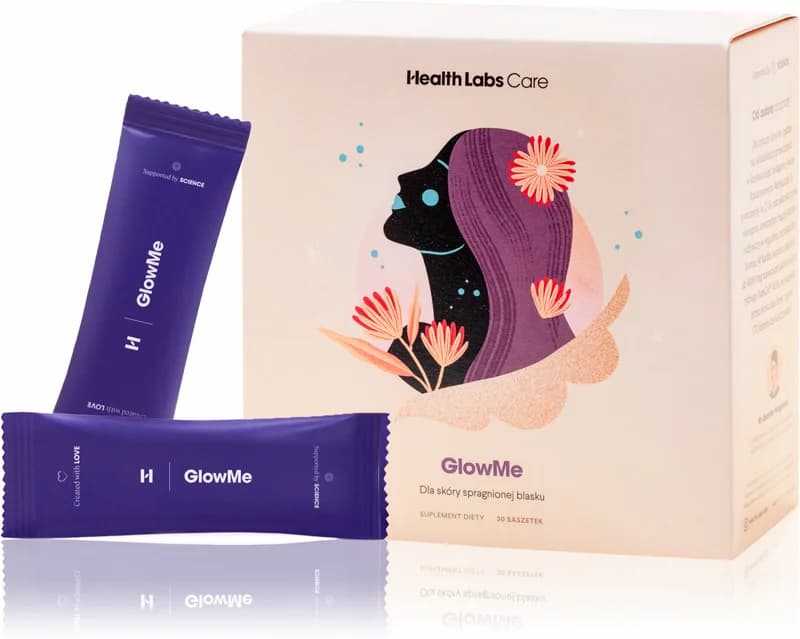
- Collagen content: 2500 mg collagen
- Additional active ingredients: vitamin C, silicon, glucosamine, hyaluronic acid, nettle and bamboo extracts
- Form: liquid to drink .
- Dose:25 ml .
- Sufficient for: 30 days .
Product description
100% natural collagen liquid without unnecessary ingredientsós. The composition of ingredientsós improves the appearance and condition of skinóry, hairów, nails. DuoLife is a good choiceór if you notice the first signs of skinóry ageing or want to stop this process. A tasty liquid, convenient to use.
Pros and cons
100% natural collagen liquid without unnecessary ingredientsós. The composition of ingredientsós improves the appearance and condition of skinóry, hairów, nails. DuoLife is a good choiceór if you notice the first signs of skinóry ageing or want to stop this process. A tasty liquid, convenient to use.
Additional information
100% natural collagen liquid without unnecessary ingredientsós. The composition of ingredientsós improves the appearance and condition of skinóry, hairów, nails. DuoLife is a good choiceór if you notice the first signs of skinóry ageing or want to stop this process. A tasty liquid, convenient to use.
User review
100% natural collagen liquid without unnecessary ingredientsós. The composition of ingredientsós improves the appearance and condition of skinóry, hairów, nails. DuoLife is a good choiceór if you notice the first signs of skinóry ageing or want to stop this process. A tasty liquid, convenient to use.
Pharmovit liquid collagen 10000 mg
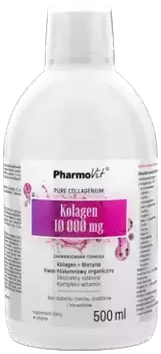
- Collagen content: 10000 mg hydrolysed bovine collagen types I and III .
- Additional active ingredients: hyaluronic acid, natural plant extracts, vitamin C, B vitamins, zinc, vitamin D
- Form: vials .
- Dose: 25 ml .
- Sufficient for: 20 days .
Product description
A solid daily dose of collagen for jointómuscle and bone health and beauty. The duo of collagen and vitamin C has a positive effect on each other, so that „the protein of youth” is better absorbed and more efficiently produced in the body.
Pros and cons
A solid daily dose of collagen for jointómuscle and bone health and beauty. The duo of collagen and vitamin C has a positive effect on each other, so that „the protein of youth” is better absorbed and more efficiently produced in the body.
Additional information
A solid daily dose of collagen for jointómuscle and bone health and beauty. The duo of collagen and vitamin C has a positive effect on each other, so that „the protein of youth” is better absorbed and more efficiently produced in the body.
KFD Premium Collagen+
Product description
High dose of collagen and a real bomb of vitamins C and D and organic sulphur. With this preparation the effects will come immediately. You will improve the firmness of your skin and reduce wrinkles. Your hair and nails will be strong and shiny.
A generous dose of collagen will improve the mobility of your jointsós, benefit your bone system and muscles. Do you do sports and need a product thatós able to keep up with your needs? This product will do the trick.
Pros and cons
High dose of collagen and a real bomb of vitamins C and D and organic sulphur. With this preparation the effects will come immediately. You will improve the firmness of your skin and reduce wrinkles. Your hair and nails will be strong and shiny.
A generous dose of collagen will improve the mobility of your jointsós, benefit your bone system and muscles. Do you do sports and need a product thatós able to keep up with your needs? This product will do the trick.
Additional information
High dose of collagen and a real bomb of vitamins C and D and organic sulphur. With this preparation the effects will come immediately. You will improve the firmness of your skin and reduce wrinkles. Your hair and nails will be strong and shiny.
A generous dose of collagen will improve the mobility of your jointsós, benefit your bone system and muscles. Do you do sports and need a product thatós able to keep up with your needs? This product will do the trick.
Expert opinion
High dose of collagen and a real bomb of vitamins C and D and organic sulphur. With this preparation the effects will come immediately. You will improve the firmness of your skin and reduce wrinkles. Your hair and nails will be strong and shiny.
A generous dose of collagen will improve the mobility of your jointsós, benefit your bone system and muscles. Do you do sports and need a product thatós able to keep up with your needs? This product will do the trick.
Product description
The dietary supplement from Remé contains beef collagen in a patented formula and vitamin C, whichóra aids its absorption. The formula comes in three flavours: neutral, orange-maracuja and strawberry-pomegranate. The formula can effectively support and improve the condition of the skinóry, hairóry and nails.
Pros and cons
The dietary supplement from Remé contains beef collagen in a patented formula and vitamin C, whichóra aids its absorption. The formula comes in three flavours: neutral, orange-maracuja and strawberry-pomegranate. The formula can effectively support and improve the condition of the skinóry, hairóry and nails.
Additional information
The dietary supplement from Remé contains beef collagen in a patented formula and vitamin C, whichóra aids its absorption. The formula comes in three flavours: neutral, orange-maracuja and strawberry-pomegranate. The formula can effectively support and improve the condition of the skinóry, hairóry and nails.
The dietary supplement from Remé contains beef collagen in a patented formula and vitamin C, whichóra aids its absorption. The formula comes in three flavours: neutral, orange-maracuja and strawberry-pomegranate. The formula can effectively support and improve the condition of the skinóry, hairóry and nails.
{ product:3toZVdGtbWWEszm5MCkjxH }}
{ product:6bAfu3AQBDUnsDAG1FSakf }}

Zobacz, co może zrobić dla Twojego zdrowia i urody Natu.Care Kolagen Premium 5000 mg -15% z kodem BLOG15
Natu.Care Kolagen Premium 5000 mg, kakao
Natu.Care Kolagen Premium dla zdrowia stawów, skóry, paznokci i włosów. Najlepsza przyswajalność. Optymalna dawka 5 000 lub 10 000 mg. Przebadany przez niezależne laboratorium.
Zobacz więcej
Efekty zaczęłam dostrzegać po około 5 tygodniach. Włosy są nawilżone, przestały też wypadać. Moja wrażliwa cera przestała się przesuszać. Plus za pyszny smak!@Milena Dlugosz
See also:
.
- The most powerful collagen .
- How to replenish collagen
- Collagen type 1, type 2, type 3
- Collagen excess .
- Collagen supplement .
- Collagen for women
- How to rebuild collagen
Summary
.
In summary
- Major factors leading to collagen depletion in the body include age, hormone status, a sterile diet and poor lifestyle hygiene.
- The best remedy is a varied diet.
- The best remedy is a varied diet rich in vitamins, minerals and collagen itself, as well as an active lifestyle.
- Collagen supplements (such as Natu.Care's Collagen Premium) are an effective way to support the body. .
FAQ
.What foods are high in collagen?
.A balanced diet containing products derived from cartilage and skin will provide you with plenty of collagen.
Foods rich in the protein of youth include:
- cicken feet, .
- chicken with skin, .
- broth on the bones (pork, beef, chicken), .
- meat and fish jellies, .
- salcessón, .
- fish with skin, .
- goat, .
- offal, .
Also remember foods that support collagen production, such as eggs, legumes, shellfish and soya. Also consume plenty of vegetables and fruit - especially those that are sources of vitamin C, vitamin A and vitamin E.
Many collagen-rich foods are characteristically meaty dishes that you don't always like (offal, cartilage, skins, jellies, seafood). If you don't like these dishes, consider a dietary supplement such as Natu.Care Premium Collagen.
Does sugar destroy collagen?
.Yes, sugar can destroy collagen in the body. This process is called glycation. Glycation occurs when sugar molecules, such as glucose, bind directly to collagen proteins, leading to the formation of harmful molecules called advanced glycation end products (AGEs).
If you want to minimise the damaging effects of sugar on collagen:
- limit your sugar intake, .
- consume foods rich in antioxidants (e.g. broccoli, spinach or carrots), .
- keep your body hydrated, .
What are the symptoms of a lack of collagen in the body?
.Symptoms that may indicate a lack of collagen in the body include:
- Appearance of wrinkles and loss of elasticity of skin.
- Weakening of nails and increased brittleness of hair. .
- Pain in joints and muscles. .
- Weaker tissue regeneration (e.g. during wound healing). .
- Digestive problems. .
- Worse immunity. .
To supplement collagen, consume amino acid-rich proteins such as meat, fish, dairy, eggs and legumes, as well as supplements. The best collagens on the market include: Natu.Care premium collagen, Colladrop Flex, Sundose collagen, or Colladrop Forte.
What vitamins affect collagen production?
.To increase collagen production, take primarily vitamin C, vitamin A and vitamin E.
.- Vitamin C is essential for collagen production. You'll find it in fruits such as citrus, strawberries, kiwi and vegetables - peppers, broccoli and kale.
- Vitamin A is a great way to get a good grip on your body.
- Vitamin A plays a key role in the repair of collagen tissue. Its excellent sources are animal products such as liver, fish and eggs, and vegetables such as carrots, yams and pumpkin.
- Vitamin E is a powerful antioxidant that protects collagen from degradation caused by free radicals. You can find it in nuts, seeds, olive fruit, spinach and avocados.
Does collagen have side effects?
.In most cases, collagen supplementation is not associated with side effects. Occasionally, however, they can occur and most commonly include:
- allergic reactions - make sure you are not allergic to the ingredients in the formulation.
- Allergic reactions - make sure you are not allergic to the ingredients in the formulation.
- gastrointestinal disorders - consumption of collagen can sometimes cause bloating, diarrhoea or a feeling of heaviness in the stomach.
- Gastrointestinal disorders - consumption of collagen can sometimes cause bloating, diarrhoea or a feeling of heaviness in the stomach.
If you experience side effects with collagen supplementation, discontinue the product. And if there is something wrong with your body despite this, see your doctor. There are very few collagen contraindications, but it is worth being vigilant, especially if you are pregnant or nursing.
Is collagen better to drink in the morning or in the evening?
.For most people, it does not matter whether collagen is consumed in the morning or in the evening. However, it is important to be regular and consume the protein of youth every day. This is the only way you can get the optimum health benefits for your skin, joints, hair, nails and connective tissue.
Choose a time that best suits your lifestyle and is convenient, and then maintain a regular intake of collagen.
What vegetable has the most collagen?
.None. Collagen is an animal protein, so you won't find it in fruit and vegetables. However, some may provide you with the ingredients you need to synthesise this protein (e.g. vitamin C). Eat these vegetables to boost collagen production:
- apple, .
- broccoli, .
- kale, .
- spinach, .
- carrots, .
- beet .
- zucchini, .
- battles, .
.
Sources
.See all
.Calleja-Agius, J., & Brincat, M. (2012). The effect of menopause on the skin and other connective tissues. Gynecological Endocrinology, 28(4), 273-277. https://doi.org/10.3109/09513590.2011.613970
Calleja-Agius, J., Muscat-Baron, Y., & Brincat, M. P. (2007). Skin ageing. Menopause International, 13(2), 60-64. https://doi.org/10.1258/175404507780796325
Fisher, G. J., Talwar, H. S., Lin, J., & Voorhees, J. J. (1999). Molecular Mechanisms of Photoaging in Human Skin In Vivo and Their Prevention by All-Trans Retinoic Acid. Photochemistry and Photobiology, 69(2), 154-157. https://doi.org/10.1111/j.1751-1097.1999.tb03268.x
Giannini, C., De Caro, L., Terzi, A., Fusaro, L., Altamura, D., Diaz, A., Lassandro, R., Boccafoschi, F., & Bunk, O. (2021). Decellularized pericardial tissues at increasing glucose, galactose and ribose concentrations and at different time points studied using scanning X-ray microscopy. IUCrJ, 8(4), 621-632. https://doi.org/10.1107/S2052252521005054
Green, M., Pragada, R. R., Ethadi, S., & Rajanna, B. (2013). Comparative study on some selected species of Ocimum genus on free radical scavenging activity and hepatoprotective activity against CCl4 induced intoxication in rats. American Journal of Molecular Biology, 3(4), Article 4. https://doi.org/10.4236/ajmb.2013.34024
Heluany, C. S., De Palma, A., Day, N. J., Farsky, S. H. P., & Nalesso, G. (2023). Hydroquinone, an Environmental Pollutant, Affects Cartilage Homeostasis through the Activation of the Aryl Hydrocarbon Receptor Pathway. Cells, 12(5), Article 5. https://doi.org/10.3390/cells12050690
Influence of Regular Exercise on Age-Related Changes in Arterial Elasticity: Mechanistic Insights From Wall Compositions in Rat Aorta. (n.d.). Retrieved 12 April 2023, from https://cdnsciencepub.com/doi/10.1139/h03-016
Jariashvili, K., Madhan, B., Brodsky, B., Kuchava, A., Namicheishvili, L., & Metreveli, N. (2012). Uv damage of collagen: Insights from model collagen peptides. Biopolymers, 97(3), 189-198. https://doi.org/10.1002/bip.21725
Kitamura, K., Hirayama, J., Tabuchi, Y., Minami, T., Matsubara, H., Hattori, A., & Suzuki, N. (2021). Glyoxal-induced formation of advanced glycation end-products in type 1 collagen decreases both its strength and flexibility in vitro. Journal of Diabetes Investigation, 12(9), 1555-1559. https://doi.org/10.1111/jdi.13528
Krane, S. M. (1974). IV. Joint erosion in rheumatoid arthritis. Arthritis & Rheumatism, 17(3), 306-312. https://doi.org/10.1002/art.1780170316
Lee, J.-S., Park, K.-Y., Min, H.-G., Lee, S. J., Kim, J.-J., Choi, J.-S., Kim, W.-S., & Cha, H.-J. (2010). Negative regulation of stress-induced matrix metalloproteinase-9 by Sirt1 in skin tissue. Experimental Dermatology, 19(12), 1060-1066. https://doi.org/10.1111/j.1600-0625.2010.01129.x
Li, Y., Xia, W., Liu, Y., Remmer, H. A., Voorhees, J., & Fisher, G. J. (2013). Solar Ultraviolet Irradiation Induces Decorin Degradation in Human Skin Likely via Neutrophil Elastase. PLOS ONE, 8(8), e72563. https://doi.org/10.1371/journal.pone.0072563
Magnusson, S. P., Langberg, H., & Kjaer, M. (2010). The pathogenesis of tendinopathy: Balancing the response to loading. Nature Reviews Rheumatology, 6(5), Article 5. https://doi.org/10.1038/nrrheum.2010.43
Mikulíková, K., Eckhardt, A., & Mikšík, I. (2006). Posttranslational modifications of collagen studied by off-line coupling of HPLC and CE. Journal of Separation Science, 29(8), 1126-1131. https://doi.org/10.1002/jssc.200500398
Nagaoka, I., Tsuruta, A., & Yoshimura, M. (2018). Evaluation of Chondroprotective Action of Glucosamine on Soccer and Rugby Players by Analyzing Type II Collagen Degradation and Synthesis Markers. Juntendo Medical Journal, 64(Suppl.1), 128-133. https://doi.org/10.14789/jmj.2018.64.JMJ18-P52
O'Keefe, J. H., Bybee, K. A., & Lavie, C. J. (2007). Alcohol and Cardiovascular Health: the Razor-Sharp Double-Edged Sword. Journal of the American College of Cardiology, 50(11), 1009-1014. https://doi.org/10.1016/j.jacc.2007.04.089
Orio, L., Antón, M., Rodríguez-Rojo, I. C., Correas, Á., García-Bueno, B., Corral, M., de Fonseca, F. R., García-Moreno, L. M., Maestú, F., & Cadaveira, F. (2018). Young alcohol binge drinkers have elevated blood endotoxin, peripheral inflammation and low cortisol levels: Neuropsychological correlations in women. Addiction Biology, 23(5), 1130-1144. https://doi.org/10.1111/adb.12543
Raine-Fenning, N. J., Brincat, M. P., & Muscat-Baron, Y. (2003). Skin Aging and Menopause. American Journal of Clinical Dermatology, 4(6), 371-378. https://doi.org/10.2165/00128071-200304060-00001
Salsas-Escat, R., & Stultz, C. M. (2009). The Molecular Mechanics of Collagen Degradation: Implications for Human Disease. Experimental Mechanics, 49(1), 65-77. https://doi.org/10.1007/s11340-007-9105-1
Selvakumar, G., Venu, D., Kuttalam, I., & Lonchin, S. (2022). Inhibition of Advanced Glycation End Product Formation in Rat Tail Tendons by Polydatin and p-Coumaric acid: An In Vitro Study. Applied Biochemistry and Biotechnology, 194(1), 339-353. https://doi.org/10.1007/s12010-021-03762-y
Shingleton, W. D., Cawston, T. E., Hodges, D. J., & Brick, P. (1996). Collagenase: A key enzyme in collagen turnover. Biochemistry and Cell Biology, 74(6), 759-775. https://doi.org/10.1139/o96-083
Sklepkiewicz, P. L., Lemaitre, V., Zelonina, T., Westerterp, M., Tall, A., & D'Armiento, J. (2013). Abstract 551: The Dual Effect of Cigarette Smoke on Macrophage Abca1-dependent Cholesterol Efflux and Protease Production Leads to Decreased Collagen and Increased Necrosis in Plaques of ApoE Deficient Mice. Arteriosclerosis, Thrombosis, and Vascular Biology, 33(suppl_1), A551-A551. https://doi.org/10.1161/atvb.33.suppl_1.A551
Suryadinata, R. V., Wirjatmadi, B., Andriani, M., & Sumarmi, S. (2022). The Expression Change of Mmp-8 and Collagen Type-2 Intracell in Lung Tissue Due to Electronic Smoke Exposure. KEMAS: Jurnal Kesehatan Masyarakat, 18(1), Article 1. https://doi.org/10.15294/kemas.v17i2.26557
Teixeira, S., Fernandes, M. H., Ferraz, M. P., & Monteiro, F. J. (2010). Proliferation and mineralization of bone marrow cells cultured on macroporous hydroxyapatite scaffolds functionalized with collagen type I for bone tissue regeneration. Journal of Biomedical Materials Research Part A, 95A(1), 1-8. https://doi.org/10.1002/jbm.a.32600
The antiaging effects of poly-gamma-glutamic acid on broad band ultraviolet B light-induced photoaging skin in a mice model. (2011). Journal of the American Academy of Dermatology, 64(2), AB20. https://doi.org/10.1016/j.jaad.2010.09.104
Tofas, T., Jamurtas, A. Z., Fatouros, I., Nikolaidis, M. G., Koutedakis, Y., Sinouris, E. A., Papageorgakopoulou, N., & Theocharis, D. A. (2008). Plyometric Exercise Increases Serum Indices of Muscle Damage and Collagen Breakdown. The Journal of Strength & Conditioning Research, 22(2), 490. https://doi.org/10.1519/JSC.0b013e31816605a0
Wang, H., Liu, X., Umino, T., Sköld, C. M., Zhu, Y., Kohyama, T., Spurzem, J. R., Romberger, D. J., & Rennard, S. I. (2001). Cigarette Smoke Inhibits Human Bronchial Epithelial Cell Repair Processes. American Journal of Respiratory Cell and Molecular Biology, 25(6), 772-779. https://doi.org/10.1165/ajrcmb.25.6.4458
Yousry, C., Saber, M. M., & Abd-Elsalam, W. H. (2022). A Cosmeceutical Topical Water-in-Oil Nanoemulsion of Natural Bioactives: Design of Experiment, in vitro Characterization, and in vivo Skin Performance Against UVB Irradiation-Induced Skin Damages. International Journal of Nanomedicine, 17, 2995-3012. https://doi.org/10.2147/IJN.S363779
Zhang, W., Song, F., & Windsor, L. J. (2009). Cigarette smoke condensate affects the collagen-degrading ability of human gingival fibroblasts. Journal of Periodontal Research, 44(6), 704-713. https://doi.org/10.1111/j.1600-0765.2008.01179.x
Jelonek, L. (2023). Collagen. Everything you need to know (B. Turczynski, ed.; 1st ed.). Natu.Care. https://books.google.com/books?vid=9788396887801
..
Editorials
Meet the team


Editor
Graduate of Journalism and Artes Liberales at the University of Warsaw. Since 2017, he has been working with the biggest portals in Poland and abroad as an editor. Previously worked for 3 years in one of the leading pharmaceutical companies - he knows the health and beauty industry inside out. In his free time, he most enjoys playing tennis or skiing.
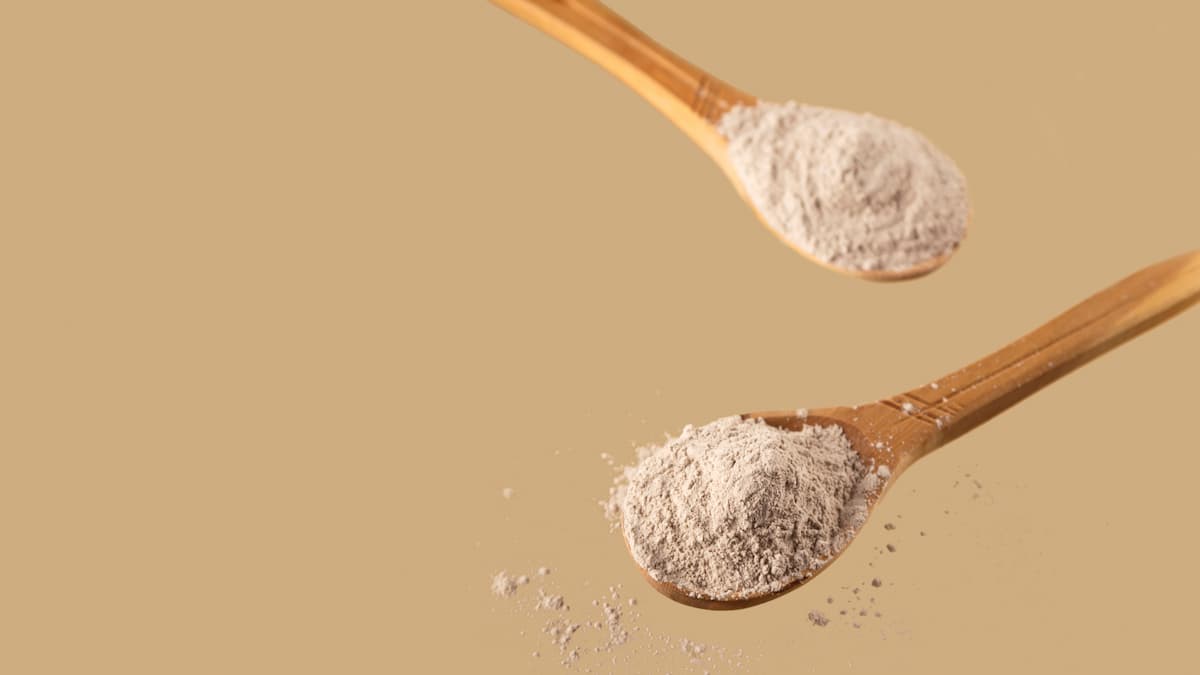
Everything you want to know about COLLinstant collagen.

Collibre collagen is an interesting supplement in shot form.
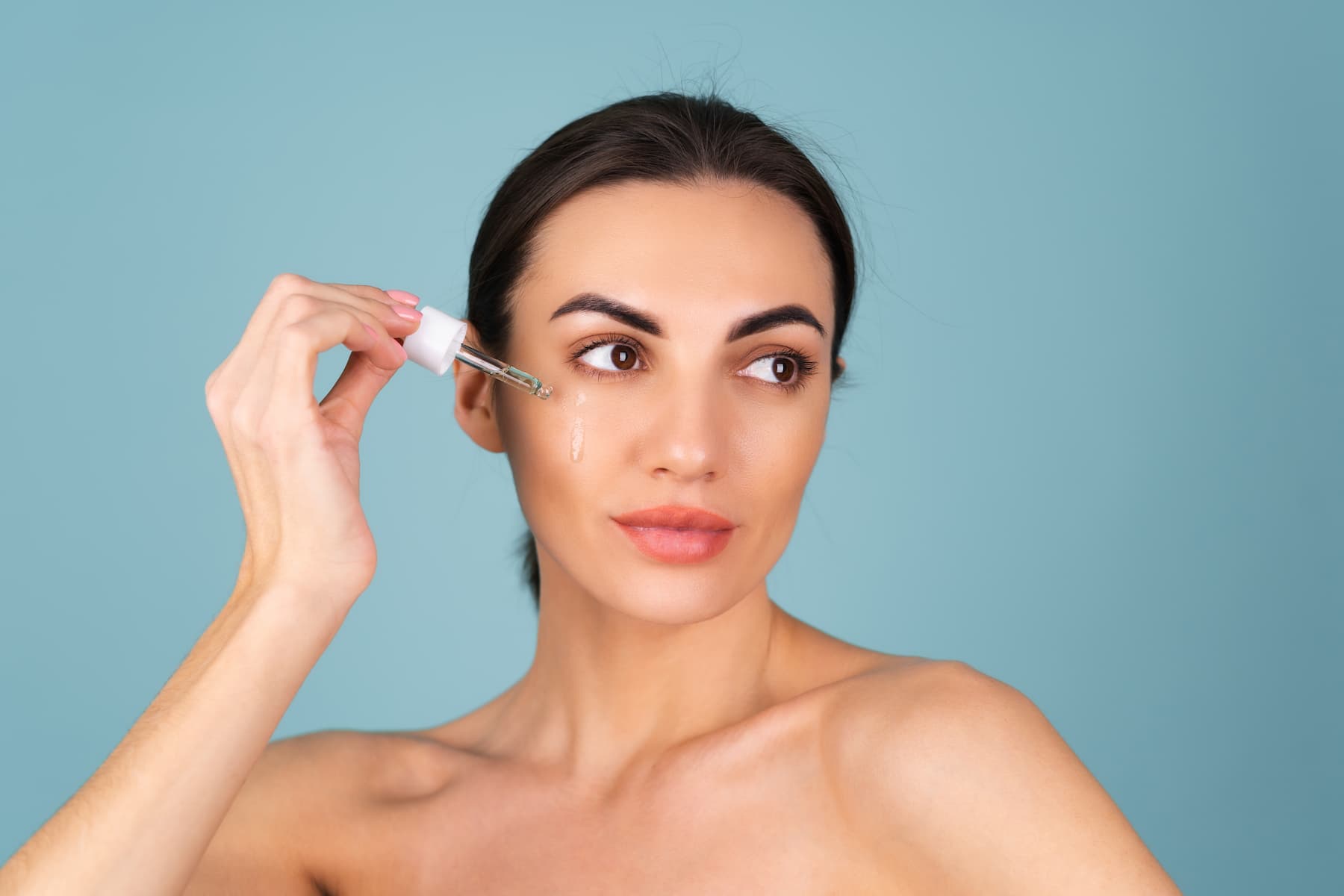
Solgar collagen with hyaluronic acid is a dietary supplement that supports skin and joint health.
